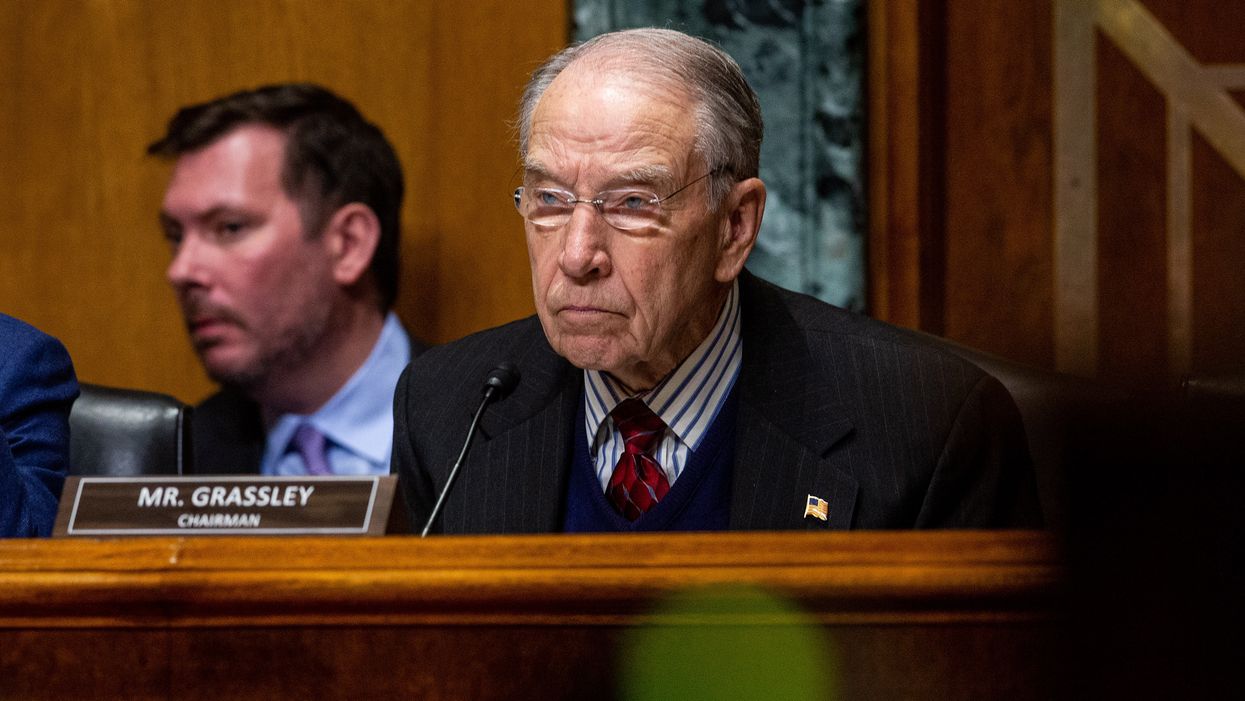
Anna Moneymaker/Bloomberg via Getty Images

He also said that the tariffs were 'a tax on Americans'
Sen. Chuck Grassley (R-Iowa) has called for President Donald Trump to lift his steel and aluminum tariffs if he wants his new trade deal with Canada and Mexico to survive.
On March 1, 2018, President Donald Trump announced that he was imposing a 25 percent global tariff on steel imports and a 10 percent global tariffs on aluminum imports. Initially, Canada, Mexico, and the European Union had exceptions to this rule. On June 1, these exceptions expired and they were hit by the tariffs as well.
In late November, Trump, along with Canadian Prime Minister Justin Trudeau and former Mexican President Enrique Peña Nieto, signed the U.S.-Mexico-Canada Agreement, to replace the former deal, NAFTA. Trump had repeatedly criticized NAFTA, calling it "the worst trade deal in history."
Despite the signing ceremony, the USMCA deal still needs to be approved by Congress before it can go into effect.
In a piece that ran Sunday in the Wall Street Journal, Grassley accused Trump of bucking "decades of Republican orthodoxy by railing against free trade agreements."
The tariffs, Grassley argued, were "a tax on Americans." He said that they also "jeopardize" the ability of not just the U.S. Congress, but the Mexican Congress and Canadian Parliament as well.
"Canadian and Mexican trade officials may be more delicate in their language, but they're diplomats. I'm not," he said. "If these tariffs aren't lifted, USMCA is dead. There is no appetite in Congress to debate USMCA with these tariffs in place."
Trump said that these tariffs were put into place in order to combat the U.S.'s trade deficit with other nations. While the trade deficit is down for the first two months of 2019, it hit a record $796 billion in 2018. Even the first two months of 2019, while lower (by $1.5 billion and $5.0 billion) than January and February 2018, are substantially higher (by $5.5 billion and $6.6. billion, respectively) than those same months during 2017.
Critics of Trump's tariff policy point out that tariffs are paid by the consumer, not the country doing the exporting. The Trump administration has also paid out $7.7 billion to farmers hurt by decreasing foreign demand for their products caused by reciprocal tariffs imposed on the United States by other countries in direct response to U.S. tariffs.